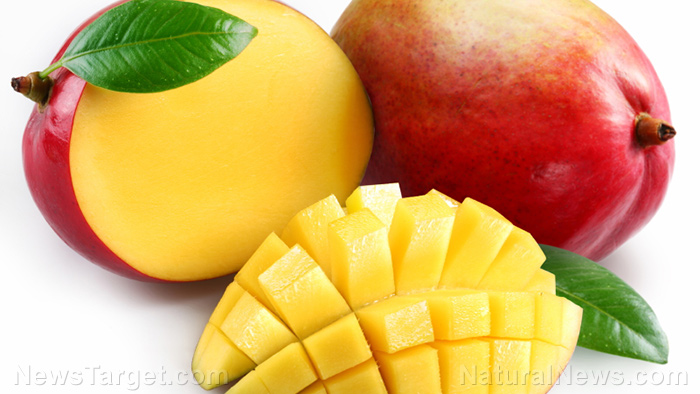How nutritious is your dried fruit? That may depend on how it was dried
01/28/2019 / By Rita Winters

Mangifera indica, commonly known as the mango, is one of the world’s most popular fruits. But let’s not stop there – it’s also one of the most nutritious fruits. When it’s off-season, people tend to buy the desiccated ones that come in packs. But exactly how nutritious are these dried mangoes? A study from Nigeria shows that the retention of nutrients in dried mangoes is dependent on how it was dried.
The process of drying mangoes is not as simple as laying out the fruit under the sun. Before mangoes are dried, they undergo different kinds of pre-treatments: an ascorbic acid dip, a honey dip, or steam blanching (at 120 degrees Celsius). The drying process itself entails three different methods: sun, solar, and oven drying. To note, the difference between sun and solar drying is that sun drying involves physically exposing the fruit directly by solar radiation, while solar drying involves keeping the fruit in an enclosed container that is heated by solar radiation (indirect). Depending on which pre-treatment and drying method is used, the nutritional content of the dried mango product varies.
The researchers of the study found that dried mangoes which underwent the most natural of drying processes had retained the highest nutritional value. This includes the honey dip pre-treatment and the sun-drying method. As compared to all other processes, dried mangoes that used this process had 140.35 milligrams of vitamin C per 100 grams of dried mangoes, and beta-carotene (?-carotene, antioxidant) levels at 5,921.90 micrograms (µg) per 100 grams.

The study entitled, “Effect of pretreatments and drying methods on some qualities of dried mango (Mangifera indica) fruit” was authored by Zinash Delebo Osunde and Lydia Abiola Adepoju from the Department of Agricultural and Bioresources Engineering at the Federal University of Technology in Minna, Nigeria. The findings of the study were published in the Commission Internationale du Génie Rural Journal (CIGR Journal), Volume 19 Number 1.
Food preservation
Drying food is one of the oldest methods of preservation in history. It involves desiccating it, or removing liquid from it through evaporation, to prevent the growth of microorganisms that hasten its senescence (the condition of deteriorating with age). Refrigerators, which are used to preserve food in cold temperatures, were only invented in the mid-1750s. Before that, they had to use other techniques such as drying, smoking, pickling, and salting.
More on mangoes
Mangoes are fruits that grow in tropical countries, and are particularly native to South Asia. These stone fruits have many varieties, and people all over the world have their own names for it. It is known to have plentiful vitamins and minerals, as well as a hefty amount of antioxidants such as astragalin, carotenes, carotenoids, mangiferin, and quercetin. It is also used as a remedy for medical conditions such as acne, allergies, diarrhea, indigestion, infections, and in ulcerative colitis.(Related: Mangoes might be the ultimate superfood for diabetes: New science finds they control both blood sugar and blood pressure.)
If you still aren’t a fan of mangoes, here are some fun facts:
- Mangoes were first grown in India over 5,000 years ago.
- The seeds were traded to other countries around 300 or 400 A.D.
- The paisley design is based on the mango.
- A mango tree can grow to 100 feet.
- One mango can provide you with 100 percent of your daily vitamin C needs, 35 percent of your vitamin A needs, and 12 percent of your daily fiber needs.
- Mango-based remedies encompass using the bark, leaves, skin, and pit of the mango (not just the fruit).
Sources include:
CIGRJournal.org [PDF]
Submit a correction >>
Tagged Under:
dried fruit, dried mangoes, drying preservation, food science, fruit, fruits, mango, mango benefits, mango health benefits, mango nutrition, mango preservation, Mangoes, nutrients, organics, preservation methods, research
This article may contain statements that reflect the opinion of the author





















